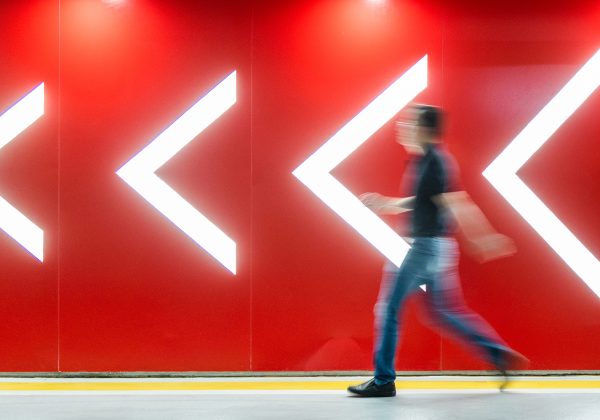Are Social Justice Issues a Corporate Responsibility?
The summer of 2021 is still with us—and leading changes that are long overdue. In the wake of the deaths of George Floyd, Breonna Taylor and countless other victims of systemic injustice in the United States, a transformation took hold across all aspects of society, including the workplace. Around the world, “business as usual” was upended while companies began to reexamine everything from their workplace culture to their investment policies through the lens of social justice issues.
Yet the pandemic has further disadvantaged the world’s most vulnerable communities, already bearing the brunt of the increasing inequities existing in and among countries, as highlighted in the United Nations Sustainable Development Goals (SDGs). U.N. High Commissioner of Human Rights Michelle Bachelet has called for urgent action to address “the major disproportionate impact of COVID-19” on racial and ethnic minorities worldwide.
Our world has never been so interlinked, and forecasts show that that is set to continue. With increasing globalization, the rise in awareness of social justice issues and human rights across the public sphere, and the ever-widening lens of social media, companies must raise their standards for corporate social responsibility and look both within and beyond their borders to examine their business practices.
Is Doing Good Good for Business?
It’s been more than 50 years since the seminal—and now controversial—Milton Friedman essay The Social Responsibility of Business Is to Increase Its Profits was published. Much has changed. Though the debate rages on as to whether corporate social responsibility offers tangible benefits to a company’s bottom line, increasingly the data says that it does.
“This [millennial] generation has a keen awareness for what is needed to make the world better, it’s time for company leaders to listen and act accordingly.” —Tracy D. Holloman, consultant, Insigniam
A series of research reports originally sponsored by Verizon and The Campbell Soup Company, Project ROI provides evidence and a business case for doing good. The studies have found that for large, publicly traded companies, corporate social responsibility practices can increase market value by up to 4%-6%, increase revenue by up to 20% and reduce staff turnover rate by up to 50%.
Customers are certainly asking more of the companies they support. Nielsen reported in 2020 that 74% of U.S. millennials, often touted as the generation with the most buying power, were more likely to buy brands supporting social justice issues they care about.
Calling millennials “a unique generation,” Tracy D. Holloman, a consultant for Insigniam, says that “they are not only buying brands that support social justice issues that they care about, but are also very selective in their careers regarding the companies that they apply to and work for. Many millennials seek out roles with companies where there is a commitment to causing sustainable social impact and/or who are committed to philanthropy. Share on X”
Beyond buying power, millennials are showing their influence on businesses with their career decisions. “It is a call to companies to do and be better which positions their organizations for strong growth as they attract, hire and retain great talent,” argues Ms. Holloman. “This generation has a keen awareness for what is needed to make the world better, it’s time for company leaders to listen and act accordingly.”
The evidence isn’t just showing up in reports and surveys. In practice, “purposeful companies” with better environmental, social and governance (ESG) profiles outperformed their peers in 2020, according to BlackRock CEO Larry Fink’s groundbreaking letter to CEOs.

The percentage of U.S. millennials more likely to buy brands supporting social issues they care about.
Source: Nielsen in 2020
Reimagining CSR: Corporate Social Responsibility Examples
Joseph Stiglitz, professor of economics at Columbia University and 2001 Nobel Prize winner, has stated: “It’s good that the business community has awaked. Now let’s see whether they practice what they preach.”
While the greatest responsibility may lie with governments, businesses have more than a big part to play. The good news is that companies around the world are responding with actionable plans addressing their internal practices, supply chains and social responsibility agendas.
According to the Edelman Trust Barometer 2021, the path to recovery starts with an expanded business mandate, one that goes beyond the corporate social responsibility of old and calls for CEOs to lead on issues and take public action on social justice issues, even if it potentially alienates certain populations of consumers or corporate partners.
Bill Penzey of Penzey’s Spices has certainly taken a stand, mixing business with his social justice efforts. No stranger to controversy, Mr. Penzey lost 3% of his customer base after calling former President Trump a racist, but soon after online sales increased by 60% and gift-box sales more than doubled that. In response to a letter questioning his views on looting, Mr. Penzey “looted” his own Kenosha, Wisconsin store to donate the entire inventory to local food pantries and other charitable organizations.
While individual commitments from leadership are a step in the right direction, multi-stakeholder coalitions allow for an integrated, intersectional approach to far-reaching inequalities. Cisco has partnered with civil society and municipal leaders across North America and Oceania to provide indigenous communities access to digital education during the pandemic. Working with suppliers, governments and non-governmental organizations, Unilever has committed to encouraging the global adoption of living wage practices and to launching reskilling and upskilling initiatives.
Another tried-and-true approach has been by means of financial resources, whether it be philanthropy or the rise of impact investing. Launched as the first investment fund focused solely on driving innovative solutions in the fashion industry, the Good Fashion Fund will invest up to $10 million on closed-loop manufacturing and the creation of fair jobs and growth in Bangladesh, and up to $25 million at the target fund size in the next two years. Bangladesh’s ready-made garment sector is now a front-runner in transparency and the leading apparel-sourcing destination, thanks to outside investments and initiatives launched in the aftermath of the 2013 Rana Plaza collapse.
Finally, businesses have turned inward to workplace, hiring and fair labor policies. Levi’s remains a model for excellence in this area since 1991, when it set the industry standard for workers’ rights and a safe work environment. Today, the denim brand vows to expand its 2011 Worker Well-being initiative to 300,000 workers and produce more than 80% of its product in Worker Well-being factories by 2025.
Companies like Estée Lauder and Apple are following suit, addressing social justice issues by expanding their networks at Historically Black Colleges and Universities (HBCUs). The cosmetics company has also committed to ensuring that the percentage of Black employees would mirror the Black population in the U.S. by 2025, while Apple, as part of its $100 million Racial Equity and Justice initiative, is launching a global innovation and learning hub at HBCUs and increasing venture capital funding for Black- and Brown-owned partners in their supply chain.
Many businesses have taken the first steps toward helping to reduce inequalities and addressing centuries-long patterns of unfairness. But whether it’s through advocacy work or taking a closer look at supply chains, these efforts need to persist through this week’s news cycle and focus on the society we’ll have in 10 or 15 years, or even generations from now—after all, this is the future of our world we’re talking about.
Procter & Gamble’s Supply Chain Success
A standout corporate social responsibility example is Procter & Gamble. Since 1976, Procter & Gamble’s supplier diversity program has been awarding contracts to businesses owned by women, racial and ethnic minorities, military veterans, people with disabilities, and members of the LGBTQ+ community. The consumer goods giant has also partnered with organizations like U.N. Women and WeConnect to ensure women entrepreneurs in all regions are getting access to training, support and business opportunities.
In September 2021, P&G committed to increasing its global spend with diverse suppliers from $3 billion the prior year to $5 billion annually by 2030. To further promote responsible sourcing, the company has established a social audit program, created by SEDEX (Supplier Ethical Data Exchange), to ensure ethical and responsible supply chains.
This article appeared in the Winter 2022 issue of Insigniam Quarterly with the headline “The Social Responsibility of Business.” To begin receiving IQ, go here.




